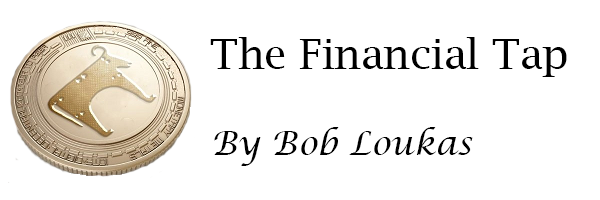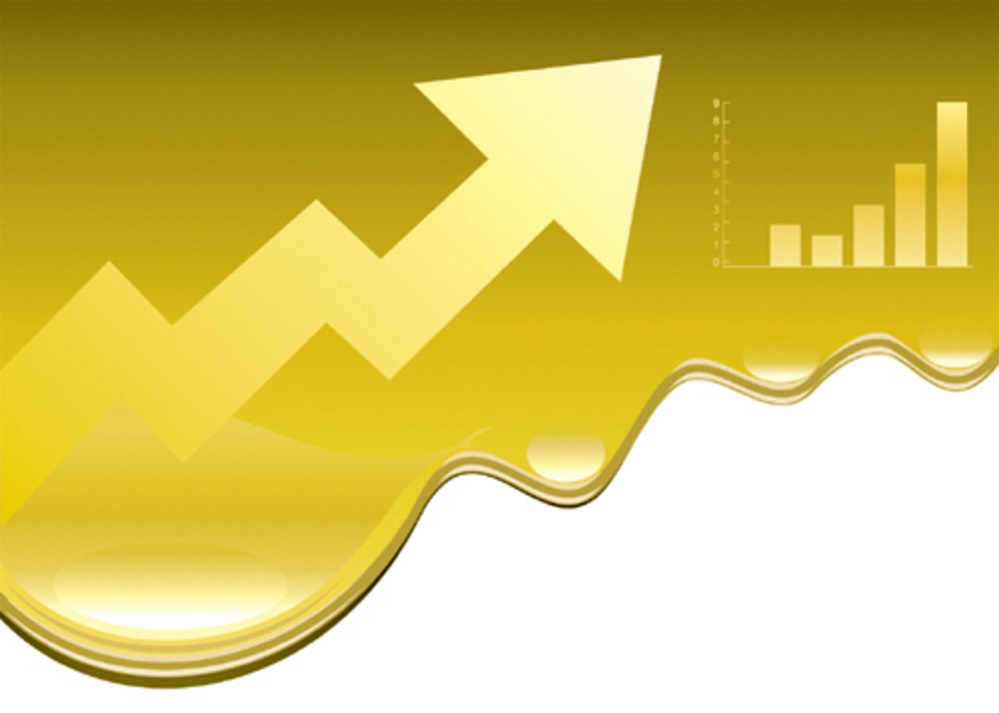Posts
Midweek Market Update – Sep 16th
/in Premium /by Bob LoukasA Time For Sitting
/in Premium /by Bob LoukasMidweek Market Update – Sept 9th
/in Premium /by Bob LoukasShort Term Crude Oil Price Recovery
/in Public /by Bob Loukas
Last week, Crude put in one of the best single week rallies on record. Such a move was obviously not the result of bargain hunters or demand buying; it was driven purely by overly-leveraged speculators covering Short positions as the market turned higher. Once such moves get going, they often take longer than six sessions to resolve, so I expect that Crude will continue higher in the coming week as traders continue to cover their Shorts.
The 2nd rally in the current Daily Cycle is beginning to take shape now, and I expect Crude to hit a new Daily Cycle high near the end of the week. If the equity markets are going to recover somewhat during the next 2 weeks, then Crude is likely to follow along. But I’m still very bearish on the entire energy sector and especially Crude oil. From my perspective, the current rally is nothing more than a Short-covering exercise.
At this point ($45.30 zone) one could consider taking another Long trade, with a stop just below the 10dma, as it looks like crude can move well above the top Bollinger Band over the next week. Then further along in the Daily Cycle, I will strongly consider a Short trade once crude becomes greatly overbought around the $50-$53 levels.
The Financial Tap publishes two member reports per week, a weekly premium report and a midweek market update report. The reports cover the movements and trading opportunities of the Gold, S&P, Oil, $USD, US Bond’s, and Natural Gas Cycles. Along with these reports, members enjoy access to two different portfolios and trade alerts. Both portfolios trade on varying time-frames (from days, weeks, to months), there is a portfolio to suit all member preferences.
You’re just 1 minute away from profitable trades! please visit: https://thefinancialtap.com
Volatility to Remain – Free Report
/in Free /by Bob Loukas
Sample Premium Member Report published on Sep 6th, 2015.
Gold Cycle
Cycle Counts
| Cycle | Count | Observation |
Probable Outlook |
Cycle Clarity |
Trend |
| Daily | Day 34 | Range 24-28 Days – 1st Daily Cycle | Neutral |
Green |
Failed |
| Investor | Week 7 | Range 22-26 Weeks | Bullish | Green | Failed |
| 4Yr | Month 40 | Range 48-52 Months | Bearish |
Green |
Failed |
At this point in Gold’s Investor Cycle, there are two primary factors in play and I’m closely tracking both. In the immediate term, I’m watching Gold’s Daily Cycle for signs of a turn higher and the beginning of a 2nd DC. In addition, Gold’s long term trend lower should guide our expectations for the next few months. After the coming DCL, the performance of the 2nd Daily Cycle will drive how Gold’s current Investor Cycle unfolds.
When the 2nd DC begins to move higher, I will remain cautious out of respect for a possible continuation of the bear market. If the bear is ongoing, it is likely we will see a top to the second DC before week 10 of the IC.
On the other hand, if Gold’s trend has changed and the yellow metal is embarking on a major bull run, it may be difficult to capture the early part of such a move. Most investors will be weighed down by 4 years of IC declines and the ongoing downtrend.
But before we can observe Gold’s 2nd DC, we need for the 1st DC to end, and that could mean at least one more decline into a DCL. I mentioned my concern about this in Wednesday’s mid-week report. So seeing another drop in Gold would not be unexpected and, if it happens, should not be considered a bearish development. Overall, the current chart setup remains constructive, and Gold is now sporting a slightly lower low from which it can form a 1st DCL. I expect Gold to turn up from here without more downside, although another day or two lower is still possible. In any event, by the end of the coming week, I expect Gold to begin a rally that should at least test the $1,170 top of the last Daily Cycle.
There is still a decent amount of fear in the Gold trading community. Watching Silver languish while the Miners retest the last ICL has not in any way inspired the Gold bulls. And seeing the sector’s more speculative assets wobble has made me wary as well. Remember, with the bear market still in force, traders and investors must remain aware of downside risks. Until the trend reverses, early Cycle rallies should only be considered counter-trend moves which can reverse sharply at any time.
Although the current move out of the ICL is still technically just such a counter-trend move, I believe that it has plenty of upside remaining. The IC count tells us it’s still too early for a top, while sentiment has failed to get above even pessimistic levels. So there is plenty of time and fuel for Gold to continue higher. Typically, an Investor Cycle Top occurs only after sentiment has reached a flat-to-elevated level, which is still well above current readings.
Perhaps of greatest importance for Gold is the COT report. All new Investor Cycles begin with some degree of Short-covering, as speculators who were over-Short during the IC decline are caught by the turn higher and forced into panic covering. For Gold, this Short-covering has begun, but the process is nowhere near the level that indicates a new equilibrium has been reached. From the below COT chart, it’s clear that the NET position (black line) is not close to the peaks associated with prior IC tops. This suggests that Gold speculators are still too Short, and that they will likely be forced to cover once the 2nd Daily Cycle gets going.
To many investors, I know it seems that the Gold sector is trading poorly. But when Gold is viewed in isolation, it’s clear that this is really not the case. In fact, the current move fits our expectations from 6 weeks ago at the start of the current Investor Cycle. Every Cycle forms in a series of ebbs and flows, and we must recognize where the asset stands in the process.
Gold should be close to completing its first DC, and the 2nd DC should see it rally for 2-4 weeks toward the bear market trend line. How Gold performs during its 2nd Daily Cycle, and especially how it moves near the last DC high and the bear market trendline, will shape its current Investor Cycle. Unfortunately for bulls, given the dominant bear market trend and Gold’s tepid movement in the new IC, I expect the declining trend-line to cap the upside move.
Investor Cycle Trading Strategy
I’m waiting to add a position here, and will consider more of the current Gold ETF. Trading a Gold ETF will not add much to our bottom line, but because we’re at the advent of a 2nd DC that we expect to roll over early in a continuation of the bear market, it doesn’t make sense for this portfolio to be exposed too Long.
Daily Cycle Trader Strategy
I’m still Long two GDX positions, and these have come close to a 100% retracement of the move up from the recent low. Price managed to hold up well on Friday, so my expectation remains that Gold will begin its 2nd DC, and that GDX will have a splendid outing when it does.
Portfolio Positions Summary
Open Positions – Investor Portfolio –
Long UGL 10% position.
Open Positions – Daily Cycle Trader Portfolio –
2 Positions Long GDX
Equities (S&P500) 
Cycle Counts
| Cycle | Count | Observation |
Probable Outlook |
Cycle Clarity | Trend |
| Daily | Day 10 | Range 36-42 Days – 2nd DC |
Bearish |
Green |
Failed |
| Investor | Week 9 | Range 20-24 Weeks | Bearish |
Green | Failed |
| 4Yr | Month 75 | Range 50-56 Months- 8th Investor Cycle. |
Bearish |
Green |
Up |
The recent collapse of the S&P toward 1,880 was severe, and pushed every technical indicator well beyond the levels of a typical Investor Cycle Low. Based on the massive bull market trend behind equities, we should expect a huge V pattern reversal that drives a quick move to a new all-time high.
Although it’s still somewhat early for a final verdict, such a huge reversal has failed to materialize. Instead, we continue to see spiking volatility, huge intra-day swings, and an Investor Cycle that suggests that there are more declines ahead. The significant volatility makes all of our outlooks somewhat murky, so any short-term expectations must be held lightly at this point. Keep this in mind as you read the scenario I outline below. It’s only one possibility. But with that caveat, I believe that equities are currently far too short-term oversold. At this juncture, a rally that tests the break-down point would not be at all unusual.
We’re faced with an Investor Cycle and bull market dilemma. If the primary (up) trend is intact, equities have seen more than enough of a decline and should be ready to rocket higher. But the severity of the decline and the way it has differed from declines in previous Investor Cycles has me thinking that a more complex market correction is unfolding.
For example, volatility has surged, and significant intra-day market swings have become much more prevalent. With one quarter of all August trading days involving a move of more than 2%, the current correction is nothing like the declines into the 6 previous ICLs.
In addition, sentiment has collapsed too far too fast, leaving the ratio of bulls to bears at a four year low. The drop in sentiment tells me that the market is running scared, and that a bear market mentality has taken hold. From a contrarian standpoint, the collapse in sentiment is bullish, but with the market in a correction, I’m fearful that it’s just too early for a longer term reversal higher.
The change in market character can be seen in the VIX index. Panicked, extreme moves in the VIX are almost always a precursor to a large degree, multi-month decline. A massive move in the fear index is typically the result of a large, underlying shift in the market, and these shifts take significant time to fully unfold. In short, what equities are currently showing is not standard Investor Cycle Low volatility, so we should not expect a swift market rebound and a plunge in the VIX.
The point is, while the technical picture points to an Investor Cycle Low, the severity and character of the current decline resembles a larger and more complex correction. And the Investor Cycle count is in agreement; even before the decline began, the most likely count showed the current IC at only week 6. A correction similar to those in 2010 and 2011 takes time to unfold, and the current Cycle count supports a decline until mid-to-late October. Seasonality supports this picture as well. Although the early portion of September is often bullish for equities, the middle of September until the middle of October has, historically, been the worst performing period of the year.
Looking at the weekly chart (below), we see an initial sell-off that was both sudden and deep. In fact, the weekly candles still indicate trades outside of the lower Bollinger Band. The “hammer candle” from 2 weeks ago was a sign that the markets might have been forming a massive “V” reversal, but the bulls just couldn’t make it happen. If equities were in a typical ICL, we would have expected the bulls to take the market higher.
In summary, so far the declines have been of the ICL variety. But the fact that the market has entered into a correction with such high volatility and so early in the Investor Cycle points to a deeper market correction. But it won’t be a straight line lower, and with markets extended to the downside, we should have a period of stability (maybe 2 weeks higher) that should lead to a short-term top. Only then, after the bulls have begun to feel comfortable that the “buy the dip” narrative will hold true again, will the market be in a position to continue its decline.
Investor Cycle Trading Strategy
I’m looking for a solid Short trade for the Investor Cycle Trading Strategy, but only if the S&P can move back to well over 2,000. Anything near 2,030 would be an excellent place to put on a Short trade.
Daily Cycle Trader Strategy
There’s too much volatility for the time being, although the right trade might actually be to go Long for the next 5 to 7 sessions. But with a failed Cycle in play, I’m not going to take a Long trade. As with the Investor Cycle Trading Strategy, I’m hoping for a rally back over 2,000 so I can place a good Short Daily Cycle trade.
Portfolio Positions Summary
Open Position – Investor Portfolio –
No position.
Open Position – Daily Cycle Trader –
No position.
CRUDE OIL
Cycle Counts
| Cycle | Count | Observation |
Probable Outlook |
Cycle Clarity |
Trend |
| Daily | Day 10 |
Range 36-42 Days ( Daily Cycle) | Bearish | Green | Down |
| Investor | Week 25 |
Range 20-24 Weeks |
Bearish |
Amber | Down |
| 4 Year | Month 7 | Range 48-52 |
Bearish |
Green |
Down |
This week, Crude put in one of the best single week rallies on record. Such a move was obviously not the result of bargain hunters or demand buying; it was driven purely by overly-leveraged speculators covering Short positions as the market turned higher. Once such moves get going, they often take longer than six sessions to resolve, so I expect that Crude will continue higher in the coming week as traders continue to cover their Shorts.
The 2nd rally in the current Daily Cycle is beginning to take shape now, and I expect Crude to hit a new Daily Cycle high near the end of the week. If the equity markets are going to recover somewhat during the next 2 weeks, then Crude is likely to follow along. But I’m still very bearish on the entire energy sector and especially Crude oil. From my perspective, the current rally is nothing more than a Short-covering exercise.
My primary concern for the energy sector is that far too much Crude supply remains on world markets. And with lower prices causing fiscal problems for the oil-producing nations, I don’t expect a meaningful reduction in world oil supply for a long time to come.
In fact, with this week’s news that President Obama has the necessary votes to ensure the survival of the Iran nuclear deal, we’re going to see another flood of Crude hit world markets at the start of 2016. Even though the sector has entered a bear market, its participants are either unwilling or unable to see the longer term implications of their actions.
As with every bull-to-bear market transition, the players that are heavily dependent the sector are too biased to appreciate (or admit) that there are bad times ahead. After years of absolutely massive capital inflows into the energy sector and despite currently depressed prices, the industry is on track to raise a record $74 billion in 2015. And with world Crude demand relatively flat, the additional $74 billion is only going to ensure that supply continues to constrain price.
Moving to the monthly chart, Crude is in month eight of a failed Yearly Cycle. The chart below clearly shows that Crude oil is locked in a cyclical bear market that could take years to resolve. But whatever the longer term outlook, timing dictates a minimum of 4 to 6 more months of lower prices before a Yearly Cycle Low arrives.
If that’s the case, the $62 high from May is almost certainly Crude’s ceiling and should not be exceeded during the current Yearly Cycle. As the current YC continues, it should become the first Left Translated Yearly Cycle in over 6 years (the last one came close), leaving the primary question now as to whether we’re seeing a short 1-2 year correction or the start of a larger, secular bear market.
Investor Portfolio Trading Strategy
No Trades.
Daily Cycle Trader Strategy
We had a great quick Long trade, but the obvious trade is now over. I considered taking another Long trade, but felt that Crude is, at this point, too overbought. If Crude can move well above the top Bollinger Band and further along in the Daily Cycle, I will strongly consider a Short trade.
Portfolio Positions Summary
Open Positions – Investor Cycle Portfolio –
None.
Open Positions – Daily Cycle Trader Portfolio –
None.
$US DOLLAR
Cycle Counts
| Cycle | Count | Observation |
Probable Outlook |
Cycle Clarity |
Trend |
| Daily | Day 10 |
Range 18-22 Days – 4th Daily Cycle | Bearish |
Green | Down |
| Investor | Week 17 |
Range 18-22 Weeks | Bearish |
Green |
Failed |
| 3Yr | Month 15 | Range 36-42 – 6th Investor Cycle. | Bullish | Green | Up |
The Dollar is at a critical point. The Investor Cycle indicates that it should have at least one more declining, Left Translated Daily Cycle ahead. A very dovish ECB and a stronger US Employment Report helped to push the Dollar to a day 8 top in the current Daily Cycle. If this is the last DC of the current IC – the outlook I favor – then a top at day 8 fits the picture.
But there are bullish undertones to the Dollar’s recent performance – holding the 10dma and a MACD cross – so we should be open to the possibility that the Dollar has already completed a short, 16 week Investor Cycle. But that is not my primary expectation; normal Cycle timing still greatly favors another Dollar breakdown in the near future. But if the Dollar doesn’t turn lower next week, we could be looking at a surprise, new Investor Cycle.
Investor Cycle Trading Strategy
No Trades currently.
Daily Cycle Trader Strategy
No Trades currently.
Investor Cycle Portfolio –
None.
Daily Cycle Trader Portfolio –
None.
U.S Bonds
Cycle Counts
| Cycle | Count | Observation |
Probable Outlook |
Cycle Clarity |
Trend |
| Daily | Day 50 | Range 20-26 Days – (DC#1) |
Bearish |
Green | Failed |
| Investor | Week 11 | Range 22-26 Weeks |
Bullish |
Green |
Failed |
| 3Yr | Month 20 | Range 50-56 Months- |
Bullish |
Green |
Up |
We saw a fairly big move in the bond market to close out the week. The strength in bonds was primarily a result of the US employment report and the resulting weak performance in equities. Since the strength occurred during the timing band for a DCL, I suspect we are most likely seeing day 2 of a new DC.
My primary concerns are that the bond Cycles are no longer obvious since the counts are very long. Plus, if the S&P is to perform well for several weeks in September, I don’t see bonds moving higher in a new Daily Cycle at the same time. Bonds and equities don’t necessarily need to be inversely correlated, but a convincing equity market move laced with “buy the dip” hope is not an environment for strong bond performance.
The equity – bond market inverse correlation may make it difficult to see where the bond market is headed in the short term, but not so for the longer term. If equities are going to correct into a deep October Cycle Low, the below weekly bond chart reflects that expectation.
The bond market is putting in a very impressive Investor Cycle, and has foreshadowed the current equity market correction. With bonds retesting their upside channel breakout, an equity market collapse into October will surely mean a continuation higher for the bond market. As risk and volatility in equities increases, the capital leaving equities should make its way into the relative safety of the US bond market, pushing bond prices significantly higher. Overall, the current bond IC continues to perform well, and there is plenty of room in both price and Cycle timing for bonds to continue to rally.
Investor Cycle Trading Strategy
No trades at present, but I will look to buy a Long position once we see a DCL.
Daily Cycle Trader Strategy
I’ll look for a Long trade at the next DCL.
Investor Portfolio –
None.
Daily Cycle Trader Portfolio –
None.
Natural Gas 
Cycle Counts
| Cycle | Count | Observation |
Probable Outlook |
Cycle Clarity |
Trend |
| Daily | Day 25 | Range 20-26 Days – (4th DC) | Bearish | Green | Flat |
| Investor | Week 21 | Range 22-26 Weeks | Bearish |
Green |
Down |
| 3Yr | Month 40 | Range 48-52 (Months) | Bearish | Green | Down |
Natural gas prices have been locked in a downtrend pretty much the entire 21 weeks of this Investor Cycle. From what I can tell there continues to be too much supply of natural gas in this market place. And if that were not enough to keep prices down, investment into new production continues despite this over-supply. That’s not going to stop prices from swinging between a Cycle trough and Cycle high, Cycle after Cycle. But we should have little to no expectation of a new bull market run anytime soon.
For where Natural gas is currently trading, it appears to be within its final Daily Cycle of this current Week 21 Investor Cycle. There is a chance that one more Daily Cycle is to come, considering my forward expectations for Equities and Crude. But for now, we have a Failed Daily Cycle on Day 25 that is seeking a Cycle Low. One more flush would do the trick, I would imagine.
Investor Cycle Trader Strategy
No trades, not enough clarity.
Daily Cycle Trader Strategy
No Trades.
Investor Portfolio –
None.
Daily Cycle Trader Portfolio –
None.





















